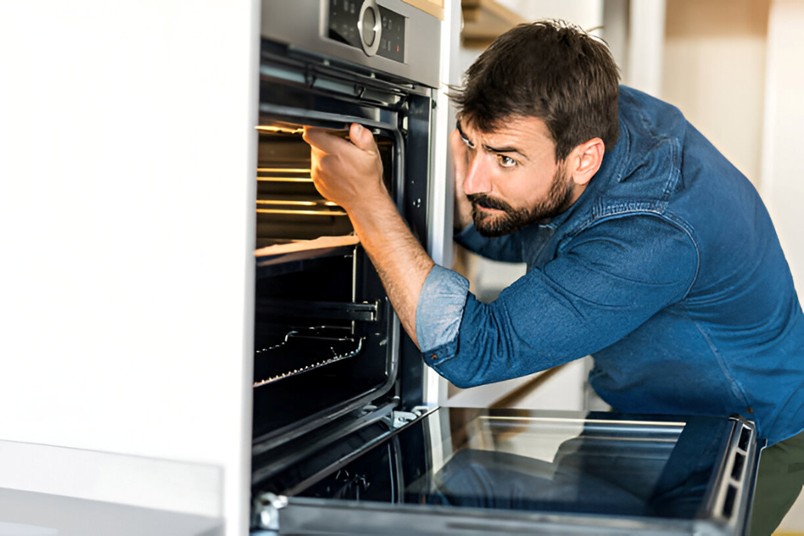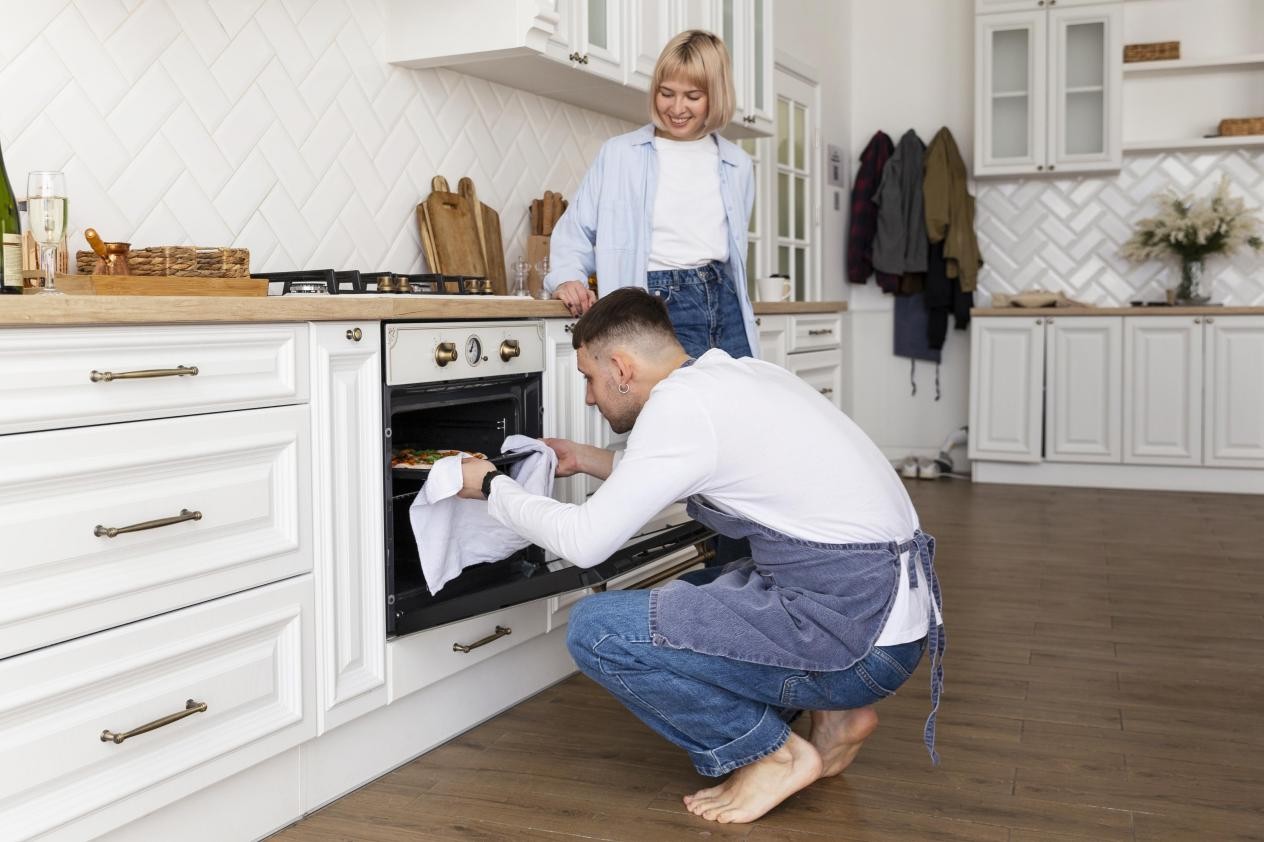Understanding Your Home’s Electrical Panel
Your home’s electrical panel, often called a breaker box or fuse box, is the central hub managing the distribution of electricity throughout your residence. It ensures that each area and appliance receives the appropriate power while safeguarding against potential electrical hazards. At Electrica Co., we believe that comprehending the function and importance of your electrical panel is crucial for maintaining a safe and efficient home environment.
Table of Contents
ToggleKey Takeaways
- Central Control: The electrical panel distributes electricity to various circuits in your home.
- Safety Mechanism: Circuit breakers prevent electrical overloads and potential fires.
- Regular Maintenance: Routine checks ensure optimal performance and safety.
What is an Electrical Panel?
An electrical panel, also called a breaker panel or fuse box, is a metal box that houses the main circuit breaker and all of the smaller circuit breakers that protect different areas and appliances in your home. The panel serves as the control center for your home’s electrical system, managing the flow of electricity and ensuring that circuits don’t become overloaded. The panel is typically located in a basement, garage, or utility room, though its exact placement depends on the layout of the home.
Components of an Electrical Panel
While electrical panels can vary in design, most share common components. Here’s a breakdown of the key parts you’ll find inside:
- Main Circuit Breaker: This is the large breaker located at the top or side of the panel, which controls the overall power supply to your home. In case of an emergency or an electrical fault, turning off the main circuit breaker cuts off electricity to the entire house. It’s important to know how to operate the main breaker in case of a power surge, fire risk, or other electrical issues.
- Circuit Breakers: These are individual switches inside the panel that control the power to specific circuits or areas in your home. Each circuit breaker is rated for a certain amperage (usually 15, 20, or 30 amps) and is designed to trip (or turn off) if the current exceeds the breaker’s capacity, preventing a potential overload or fire hazard.
- Bus Bar: The bus bar is a metal strip that connects the circuit breakers to the main power supply, distributing electrical current to each breaker. It is typically a copper or aluminum strip located at the top or bottom of the panel.
- Neutral Bus Bar: The neutral bus bar connects to the neutral wire, which is responsible for completing the electrical circuit by carrying the return current. It ensures that the current has a safe return path back to the utility grid.
- Grounding Bar: This bar connects to the ground wire and is designed to protect you from electrical shock by directing any stray electrical current safely into the earth. A well-grounded system is essential for electrical safety.
- The Panel Cover: The cover of the electrical panel is designed to keep the internal components safe from debris and accidental contact. It also serves to protect against electrical hazards.
How Does an Electrical Panel Work?
When electricity enters your home from the utility company, it passes through the meter, which measures your electricity consumption, and then into the electrical panel. From there, the main circuit breaker divides the power and distributes it to various branch circuits.
Each branch circuit is connected to a specific breaker, which acts as a switch. When an electrical appliance or fixture is used, the circuit breaker allows electricity to flow through the circuit to power the device. If the current exceeds the rated capacity of the breaker (for example, if a device malfunctions or too many devices are plugged into a single circuit), the breaker trips and cuts off the power, preventing overheating and fires.
This is a key feature of modern electrical systems—the circuit breaker. Older homes may still use fuses, which are similar in function but require replacing when they burn out, while circuit breakers can be reset.
Common Electrical Panel Problems
Several potential issues can arise with your home’s electrical panel. Recognising these problems early can help prevent electrical failures or dangerous situations.
- Tripping Breakers: If your circuit breakers are constantly tripping, it could indicate that the circuits are overloaded. This can happen if too many appliances are plugged into the same circuit or if there is a fault in the wiring or devices on that circuit. It’s important to address this by redistributing electrical loads or seeking professional help to inspect the wiring.
- Flickering Lights: If you notice that your lights flicker or dim intermittently, it could be a sign that there is an issue with the panel or wiring. Flickering lights may also occur if the circuit is overloaded or if there is a loose connection inside the panel.
- Burning Smell or Discoloration: A burning smell or discoloration around the electrical panel or breakers is a serious issue that requires immediate attention. This could indicate overheating or faulty wiring, which could pose a fire hazard.
- Old or Outdated Panels: Electrical panels can last for decades, but older panels may not meet modern power demands, particularly in homes with newer appliances, air conditioners, or home entertainment systems. If your home is using an older fuse box or panel, it may be worth upgrading to a modern circuit breaker panel to ensure better safety and functionality.
- Rust or Moisture: Exposure to moisture can lead to rust, which may affect the panel’s functionality and safety. Ensure the panel is kept dry and free from excess humidity.
Maintaining and Upgrading Your Electrical Panel
Regular electrical safety inspection and maintenance of your electrical panel are essential for keeping your home’s electrical system running smoothly and safely. Some basic maintenance tasks include:
- Check for Loose Connections: Loose connections can cause overheating or even fires. Periodically check the panel for any loose wires or connections that could pose a risk.
- Labeling Breakers: It’s important to label each circuit breaker clearly so that you can quickly identify which breaker controls which area or appliance. This is especially helpful in emergencies.
- Professional Inspections: It’s a good idea to have your electrical panel inspected by a licensed electrical specialists every few years, especially if your home is older or if you notice any issues.
If you find that your panel is outdated or cannot handle the electrical load of your modern lifestyle, it may be time to upgrade. An electrical panel upgrade can ensure that your home’s electrical system remains safe and efficient, preventing overloading and allowing you to use newer, high-powered appliances.
Conclusion
Knowing how your home’s electrical panel works is crucial for keeping your electrical system safe and efficient. Routine checks and maintenance help prevent risks and costly fixes. If you have concerns or require professional assistance, don’t hesitate to contact Electrica Co. Our experienced electricians are ready to help with all your electrical needs.
FAQs:
An electrical panel regulates and distributes electricity from the utility provider to various circuits throughout your home.
If your panel frequently trips, emits a burning smell, or struggles to support modern appliances, it may need an upgrade for better efficiency and safety.
Breakers trip to prevent overheating and fire hazards. Frequent tripping may indicate an overloaded circuit, faulty wiring, or a malfunctioning appliance.
It’s recommended to have a professional inspection every 3 to 5 years or more often if you experience flickering lights, power issues, or panel overheating.
Yes, if your panel has available capacity. However, a licensed electrician should assess and safely install additional circuits if needed.
Rust and moisture can cause electrical hazards. If you notice any, contact a professional immediately to assess and repair potential issues.







